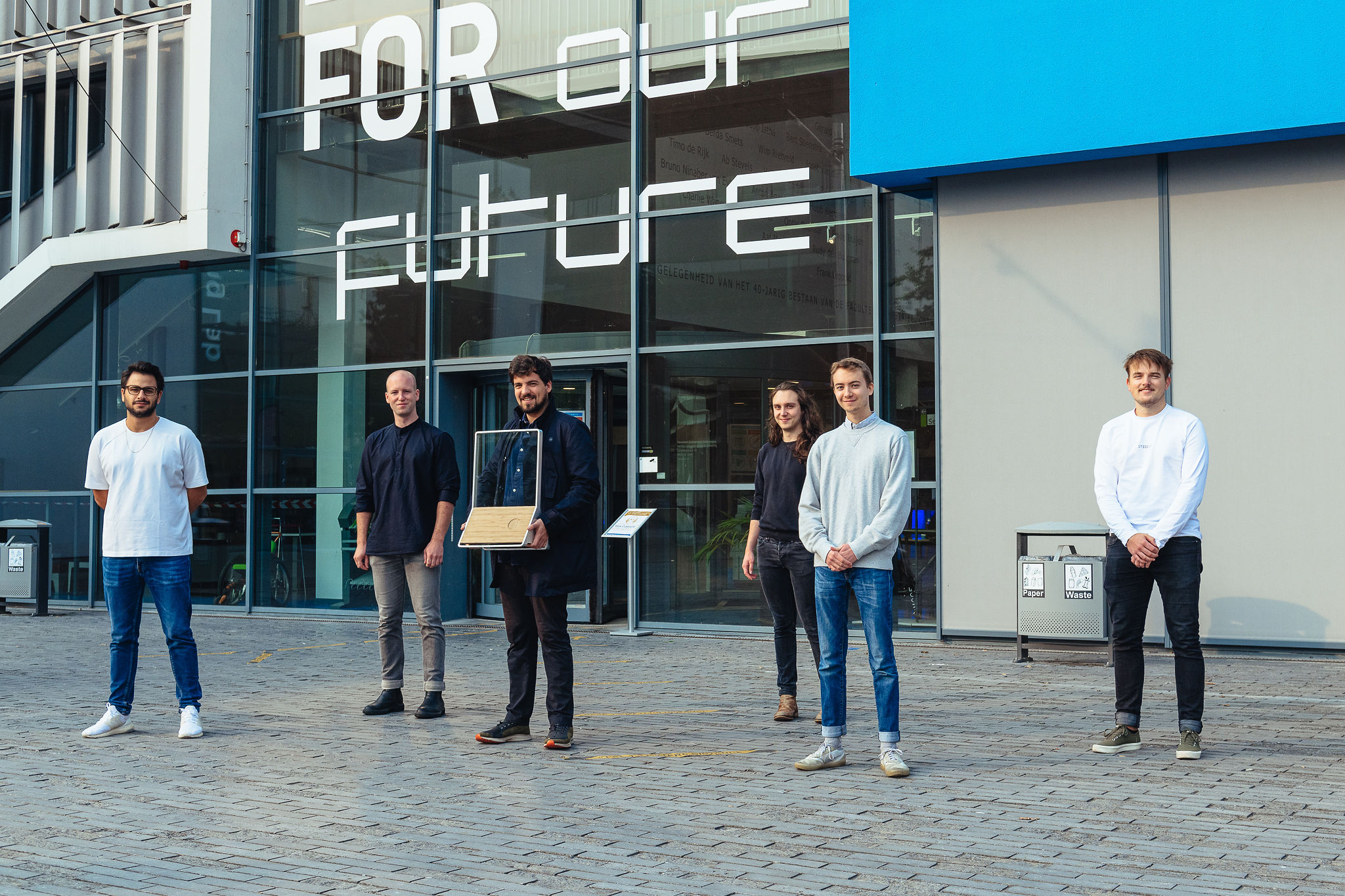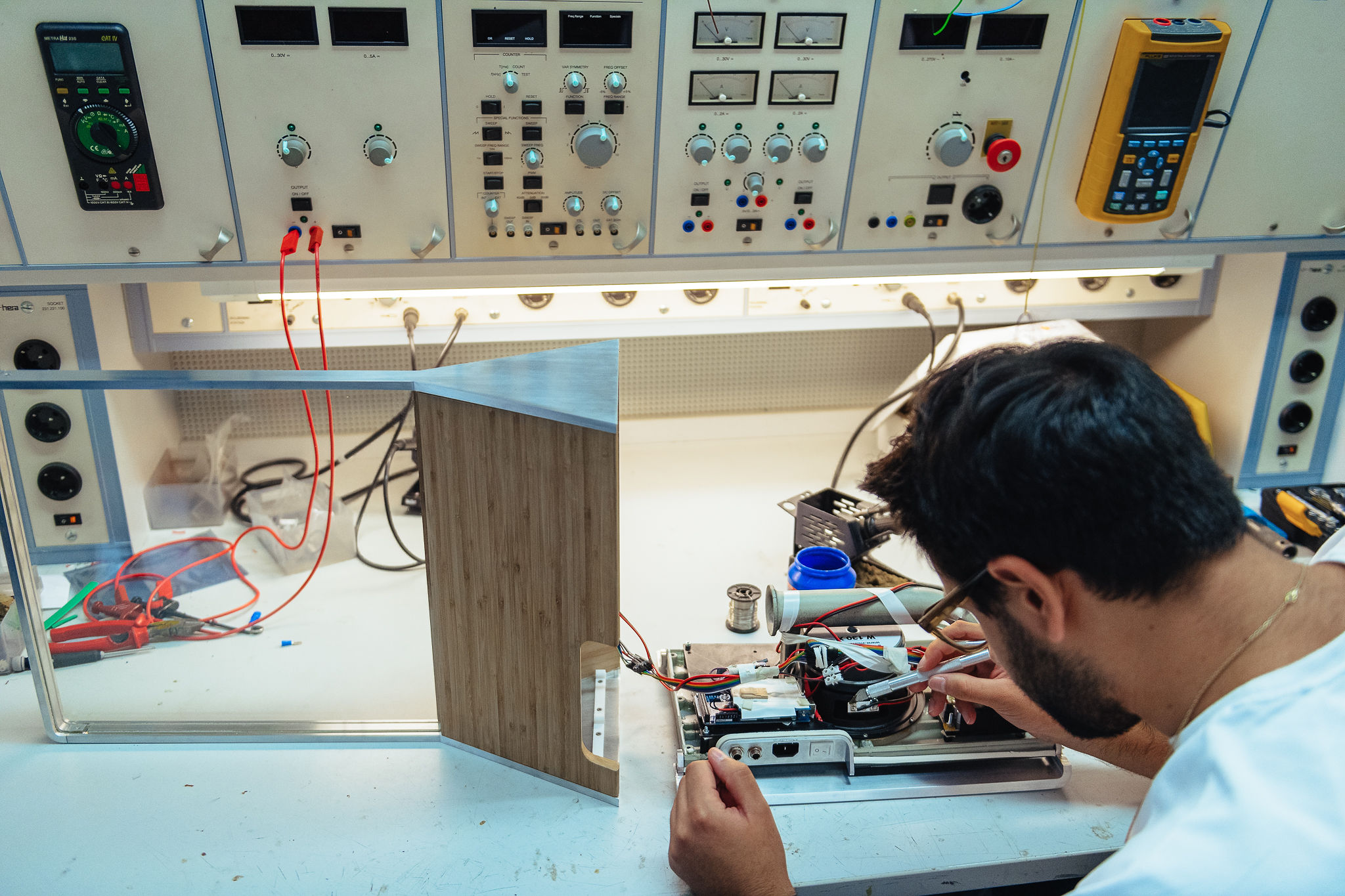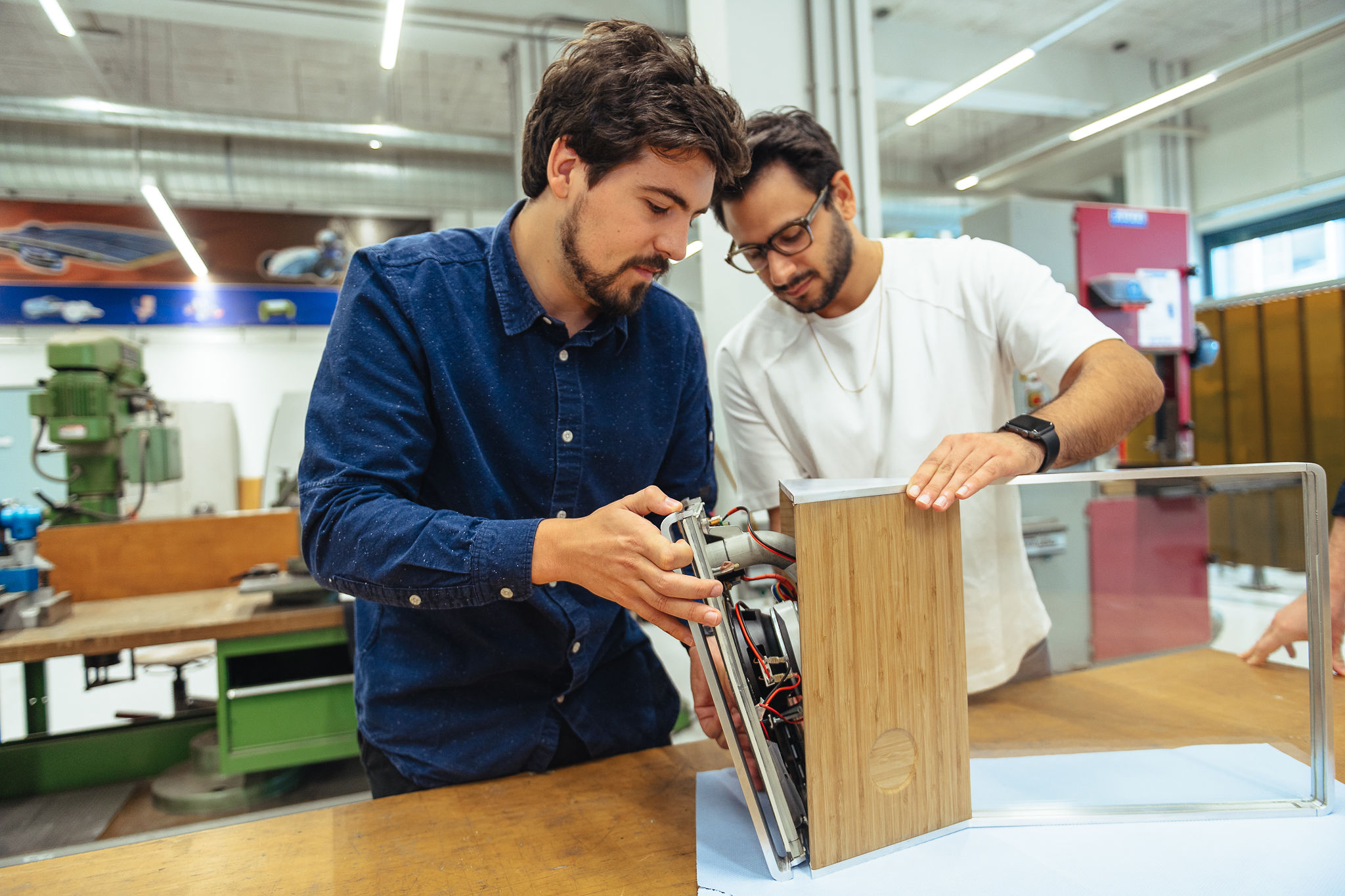TU Delft students win James Dyson Award 2020 with easy-to-repair glass speaker
Six industrial design engineering students from Delft University of Technology have won the Dutch edition of the James Dyson Award with Ammos: a fully recyclable home audio system that produces crystal clear sound with a sheet of glass. With their sustainable design they hope to stimulate recycling and give everyone the chance to easily repair their audio system.
Electronic waste is growing at speed. Harmful to the environment and bad for your wallet, last year, more than fifty million tons of electrical appliances were thrown away worldwide. More than seven kilos per person. As demand for modern appliances grows, the mountain of e-waste keeps growing. Students at TU Delft’s Faculty of Industrial Design (IDE) realised that things could be done better. With the development of Ammos, they aim to start a counter-movement to the current throw-away culture. A glass speaker that you can repair yourself with just one screwdriver.
The James Dyson Award brief
"Design something that solves a problem." This is the brief for students at the James Dyson Award. The big problem for consumer electronics is twofold. Firstly they're often difficult, if not impossible to repair. Secondly, they are very difficult to recycle. Current speakers, for example, include parts made from rare metals. In collaboration with the Yes! Delft startup, DeNoize, the students set to work on the most important element of their Ammos design: the highly recyclable material that is glass. While DeNoize is developing soundproof glass for buildings, the design students turned this concept on its head. What if we let the glass generate sound? With only ecologically sound materials such as bamboo and no compounds such as glue, Ammos is not only sustainable in production, but also easy to disassemble if you want to replace parts.
How does it work?
Ammos amplifies sound by vibrating a thin glass plate with the help of small actuators placed invisibly close to the edge of the glass. Thus the glass produces medium to high frequencies from 200 to 20,000 Hz. A small subwoofer in the base produces low frequencies of 20 and 200 Hz for a full sound spectrum. The speaker can be connected via Wi-Fi and Bluetooth and has USB-C, 3.5mm audio cable and power support as inputs. The bamboo front panel has a haptic touch surface that allows easy operation.
A winning design
The jury was impressed by Ammos' design, with a long lifespan due to the high-quality components and timeless design. The product consists of secondary materials that have been chosen for durability, user quality and because they are ecologically sound. The aluminium printed circuit boards, for example, provide better heat dissipation, longevity, recyclability and are non-toxic. Ammos also stands for reparability. No glue is used, all fastenings can be undone with a single screwdriver and all electronics are accessible by removing only six screws. Critical components can be replaced more easily and cheaply, for example in case of a crack in the glass plate. This enhances the lifecycle of the product, builds consumer confidence and supports a repair culture.




